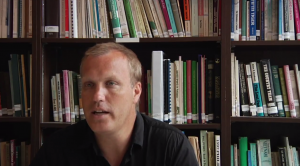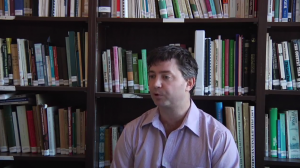Regulating Pacific Seasonal Labour in Australia
Memo #18 – Developed economies throughout the Asia Pacific region are grappling with how to design immigration policies that balance domestic concerns about labour shortages with respect for human rights and the need to maintain good bilateral relations with sending countries. In 2008, the Australian government piloted a scheme for bringing seasonal workers from four Pacific Island countries (Papua New Guinea, Kiribati, Tonga, and Vanuatu) to fill the gaps in Australia’s horticultural industry.
Dr. Andrew M. Fischer Discusses Development Issues in China and Tibet
Memo #17 – In a 5-part interview, Dr. Andrew M. Fischer talks about the significance of the International Association for Tibetan Studies (IATS). He underlines that the IATS creates a unique setting where Tibetans from China, India, and abroad can meet for academic and professional discussions. When discussing the Western Development Project and Tibet-related development, he emphasizes that China has been replicating the growth model of its coastal areas in its western areas. This model of focusing on growth poles resulted in phenomenal growth in the western areas, although a result may be intensified inequalities for those who live near the poles. Tibetans are fundamentally disadvantaged by economic developments that are centred in urban areas, as those areas are controlled by outside governments, companies, and investors. Fluent Chinese speakers with outside connections benefit most from the economic conditions.
Canadian Mining and Human Rights in Asia: Building an Advantage or Dismantling Competitiveness?
Memo #16 – On September 20, 2010, Canada’s House of Commons will give third reading to the Private Members Bill, C-300. If passed, it will have significant implications for the Canadian extractive industry’s nearly $9 billion worth of mining assets throughout the Asia-Pacific region. It is expected to draw fierce opposition from the Conservative side of the House. Although the proposed law has sparked a much-needed debate on mining and human rights, it is deeply flawed.
65 Years After The Asia Pacific War: The End of History Politics?
Memo #15 – It is not that the contentious issues have been resolved, or that a general history lovefest has broken out across East Asia. But international exchanges over historical controversies have been toned down, especially between South Korea and Japan. The 65th anniversary of Japan’s surrender passed quietly on August 15th, 2010. The U.S. ambassador to Japan’s participation in the ceremony to commemorate the atomic bombing of Hiroshima on August 6th was the most commented-on element of the anniversary.
Nelson Rand, a Canadian journalist wounded in Bangkok analyzes the Thailand conflict
Memo #14 – Nelson Rand is a Canadian journalist based in Bangkok who has been covering insurgencies and political protests in Thailand for the past 6 years. He was wounded while covering the protests earlier in the summer. He is a graduate of the Master of Arts – Asia Pacific Policy Studies (MAPPS) program at UBC.
The “Directed Public” of China’s Public Intellectuals
Memo #13 – Back in 2004, Guangzhou’s People Magazine Weekly listed their pick of China’s 50 top public intellectuals – writers, lawyers, and academics who lead on public issues. Not any more. Have China’s public intellectuals disappeared?
The Prospects for Tibetan Self-Rule
Memo #12 – The imprisonment of Tibetan environmentalists in June and July 2010 and the stalled negotiations between the Dalai Lama’s representatives and Beijing make it hard to imagine that more tolerant Chinese rule in Tibet is on the horizon.
Broad Gauge versus Narrow Gauge: The Politics of Dimension in Mongolia’s Railroad System
Memo #11 – The outcome of a debate over railway track dimensions, whether to use broad gauge to Russia, or narrow gauge to China, could determine the direction of Mongolian foreign policy. On one hand, the debate indicates the strength of Mongolia’s democracy. On the other hand, it is a clear example of a geo-economic contest where the standards of a former hegemonic power (Russia) are challenged by an emerging major power (China).
Media Narratives and North Korea: Content Convergence in (Mis)reporting on the Fate of the North Korean National Soccer Team Coach
Memo #10 – News and internet channels around the world reacted with indignation, pity, and outrage to reports that the coach of North Korea’s World Cup soccer team, Kim Chong-hun, had been sent to a labour mine and forced to work for 14 hours a day after a 6 hour public harangue of most of his team and staff.
What’s Next for Thailand? A Post-Crackdown Commentary
Memo #8 – The bomb blast in Bangkok last month underscores that few are smiling in the “Land of Smiles.” The street protests have been suppressed but recent polls indicated that at least three-quarters of Thai think the political crisis is far from over.


